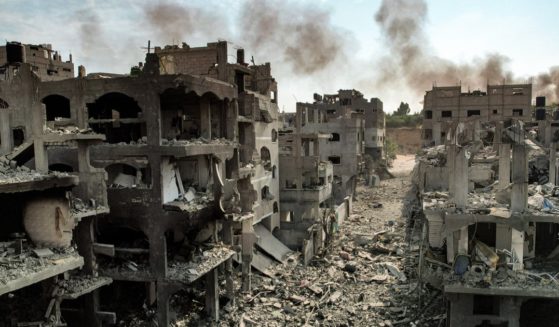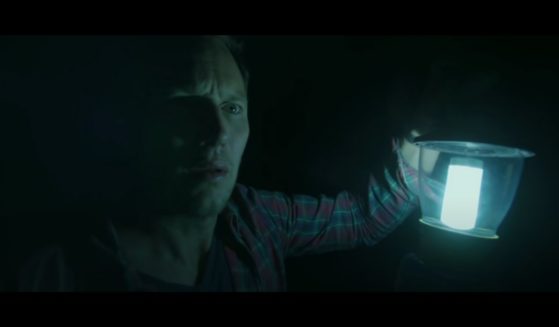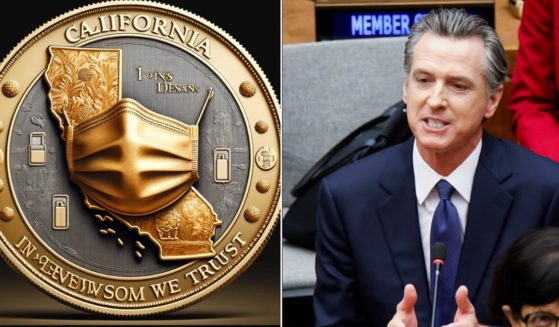'We Knew It Was Going to Look Horrible': Hollywood Employees Admit Why Today's Films Look Terrible
As visual effects technology continues to evolve, one would expect today’s biggest movies to look the absolute best they can be. However, oftentimes that presumption is far from reality.
Despite the innate innovation and creativity that had characterized the film industry for more than 100 years, Hollywood has a VFX problem it can no longer ignore.
Due to the explosion of streaming services and VFX-heavy blockbusters that both raised production budgets and now required an exorbitant number of hours on the computer, the special effects crisis and, consequently, the working conditions of VFX artists have only worsened in recent years, according to an in-depth report published by GQ in January.
One such artist named Yves McCrae, who had designed computer-generated imagery on multiple big-budget projects including “Godzilla,” “Black Panther” and “Stranger Things,” told the men’s magazine of his work on “Cats.” The 2019 musical was notorious for its bad CGI upon release, sparking memes that mocked the film for falling into the uncanny valley.
“There just wasn’t enough time, or enough experienced artists, to give it nearly as much polish as such a VFX-heavy movie like this requires,” McCrae said.
“We knew it was going to look horrible. But we were all having a fun time working on it.”
Though McCrae looked back on the film and laughed, others could not say the same about their VFX nightmares.
Many employees of VFX houses were reportedly driven to the edge due to workplace abuse, tight deadlines and unreasonable hours, sometimes totaling up to 70-hour workweeks. The burnout was so extreme that some artists would cry in bathrooms as they worked into the early hours of the morning.
Additionally, others could not leave at the end of the day before their work was finished.
“I’ve been worked to the point where I felt like I was going to die,” an employee posted on Reddit. Another likened the working conditions to “psychological torture.”
Furthermore, big-time movie studios requesting their help don’t make it easy on the VFX designers either. One even called out Marvel Studios, the Disney-owned subsidiary known for rushing CGI shots on its packed slate of theatrical films and streaming series.
“Working on Marvel shows is what pushed me to leave the VFX industry,” Dhruv Govil tweeted last year. “They’re a horrible client, and I’ve seen way too many colleagues break down after being overworked.”
Govil worked on “Guardians of the Galaxy” and “Spider-Man: Homecoming” before quitting Hollywood altogether.
Once dominating the box office with groundbreaking visuals, Marvel has worse CGI today than movies released over a decade ago.
Such a downgrade In the last 13 years
by u/BozZombiesArnie in marvelmemes
Other related problems plaguing the movie business are inexperienced artists getting projects for which they are unqualified, not enough experienced artists on a given project and directors who either don’t or won’t understand the VFX creative process. All these difficulties fall under the coined term “pixel f***ed.”
For more context surrounding the issue, please watch the video below.
Although the VFX crisis has taken a toll on Hollywood, there are still a few cinematic bright spots this year that utilize the technology well.
For example, the newly released “Mission: Impossible — Dead Reckoning Part One” and the upcoming “Dune: Part Two” appear to implement CGI in creative ways alongside practical stunts and effects — or in the case of “Oppenheimer,” no CGI shots were used at all.
Films like these show it’s possible for VFX to look good or even spectacular, but Hollywood doesn’t seem to care about its workers or its craft at the moment. Because of this, the VFX crisis will likely continue and lead to the downfall of the film industry.
Truth and Accuracy
We are committed to truth and accuracy in all of our journalism. Read our editorial standards.












